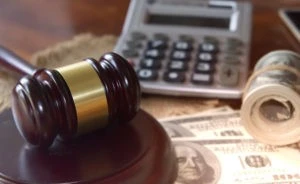 If you or someone you love were injured in an accident caused by someone else’s negligence, you could be entitled to compensation. Compensatory damages are often awarded in two categories. The first category, called actual compensatory damages, costs you will incur as the result of your injuries. These will include medical care and other out-of-pocket expenses.
The second category, called compensatory general damages, includes damages that do not have an out-of-pocket component. These are typically based on the severity and extent of your injuries and include damages such as physical and emotional pain and suffering and other provable, but intangible, financial losses.
If you or someone you love were injured in an accident caused by someone else’s negligence, you could be entitled to compensation. Compensatory damages are often awarded in two categories. The first category, called actual compensatory damages, costs you will incur as the result of your injuries. These will include medical care and other out-of-pocket expenses.
The second category, called compensatory general damages, includes damages that do not have an out-of-pocket component. These are typically based on the severity and extent of your injuries and include damages such as physical and emotional pain and suffering and other provable, but intangible, financial losses.
In This Article
Reading time: 4 minutes
- Examples of Recoverable Compensatory Damages
- Compensatory Versus Punitive Damages
- Get Your No-Cost Case Review Today
Examples of Recoverable Compensatory Damages
If you or someone you love were injured in an accident that is able to be attributed to the negligence, recklessness, or carelessness of another person or entity, you could be eligible to recover compensatory damages via a personal injury insurance claim or lawsuit. According to Investopedia guidelines, actual compensatory damages include:- Medical bills
- Lost wages
- Required medication
- Therapy and rehab
- In-home medical support
- Property damage or loss
- Funeral and burial costs, if applicable
- Pain and suffering
- Disfigurement
- Mental anguish
- Emotional trauma
- Impaired quality of life
Proving the At-Fault Party’s Negligence
Personal injury cases that typically result in the injured party requesting compensatory damages include:- Car accidents
- Truck accidents
- Slip-and-fall accidents
- Dog bite or attack cases
- Medical malpractice cases
- Wrongful death cases
- Duty of care
- Breach of duty
- Causation
- Damages
Evidence That Supports Your Request for Compensation
When you request compensation for your injuries and the expenses that stem from them, the negligent party and their legal or insurance representative will request proof of:- The cause of the accident
- Their client’s negligence
- The value of your request
- Accident or incident reports
- Medical records and bills
- Written prognosis
- Proof of income
- Accident scene photos
- Photos of your injuries
- Witness statements
For a free legal consultation, call (516) 932-0400
Compensatory Versus Punitive Damages
In some personal injury cases, compensation requests will include punitive damages. Punitive damages are rarely awarded. When they are, they are not based on any form of tangible or intangible financial expenses or losses you incurred because of the accident. Instead, punitive damages are intended to penalize the at-fault party for actions that are:- Intentional
- Egregious
- Malicious
Proving Your Right to Punitive Damages
If the circumstances of your personal injury case warrant receipt of punitive damages, the lawyer who represents you will add them to your request for compensation. Your lawyer will also include proof of the at-fault party’s actions in the evidence file created for you. This evidence will include witness statements and other records that point to the at-fault party’s actions and intentions. Your lawyer will explain which evidence indicates egregious actions on the part of the at-fault party.Get Your No-Cost Case Review Today
If you or a loved one were injured in an accident, our personal injury law firm will work hard to fight for the compensation you deserve from the at-fault party. We will explain what compensatory damages are, how we assign a value to yours, and how we handle the settlement negotiation process on your behalf. Contact one of our Friedman & Simon, L.L.P. team members for a free initial review of your personal injury case by calling today.Call or text (516) 932-0400 or complete a Free Case Evaluation form
